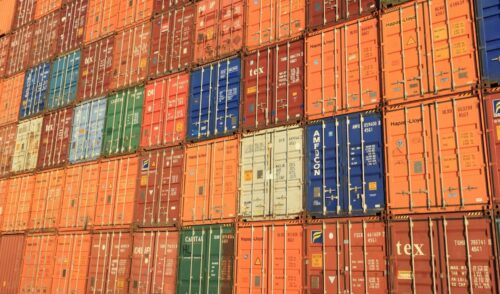Clean Bill Of Lading: Definition And Importance

A clean bill of lading is essential in international trade, guaranteeing that goods are shipped in perfect condition. It serves as a contract between the shipper, carrier, and receiver and a vital assurance of the shipment’s integrity.
This article examines the critical role and definition of a clean bill of lading, highlighting its significance in ensuring successful global transactions.
Clean Bill Of Lading Definition
A clean bill of lading is a legal document issued by the product carrier after inspecting the shipment. It declares that there’s no damage or loss of goods during transportation.
This document is specifically used for goods shipped overseas by sea. It provides detailed information about the shipment and serves as a contract between the shipper, carrier, and receiver. The clean bill of lading acts as a receipt of shipment at the predetermined destination.
The concept of a clean bill of lading dates back to the early days of maritime trade, reflecting the evolution of shipping practices and international commerce. Originally, it served as a basic agreement, but as global trade expanded, its role became more complex and legally binding.
This transition mirrors the increasing need for stringent standards in international shipping, ensuring that goods are transported safely and efficiently across vast distances.
The Significance Of A Bill Of Lading In The Transport Industry
The significance of a bill of lading in the transport industry can’t be overstated. It is a crucial document that guarantees the condition and quantity of goods shipped, ensuring accountability and transparency between the shipper, carrier, and receiver.
A clean bill of lading plays a vital role in verifying the shipment’s integrity and facilitating smooth financial transactions in international trade.
Clean Bill Of Lading
A clean bill of lading is a key document in international shipping issued by the carrier after inspecting the cargo. It certifies that goods are in good condition, with no damage or defects, as a contract between the shipper, carrier, and receiver.
It also acts as a receipt at the destination, ensuring shipment integrity. A clause or dirty bill is issued for damaged or missing goods, impacting the importer’s acceptance of international trade contracts.
Clause Bill Of Lading
Clause Bill of Lading is a critical document in the transport industry that specifically highlights discrepancies in the shipped cargo, such as missing quantities or damage. This contrasts sharply with a clean bill of lading, which certifies that the goods are in good condition and free from visible defects or damage.
Unlike a clean bill of lading, which declares that the goods are in good condition, a clause bill of lading highlights discrepancies or issues with the shipment.
Foul Or Dirty Bill Of Lading
The Foul Bill or Dirty Bill of Lading are identical. These terms are used interchangeably in the transport industry to describe a bill of lading that contains notations or clauses indicating defects, damages, or shortages in shipping goods.
These types of bills of lading serve as a record that the goods were not in perfect condition at the time of shipment, highlighting any carrier issues like damaged packaging, broken items, or a shortfall in the expected quantity.
Pertinent Detail Of A Bill Of Lading

The clean bill of lading is an essential document in international shipping, encompassing several key roles:
- Evidence of Cargo Condition: Confirms that goods are shipped in good condition, indicating proper inspection and satisfactory condition before loading.
- Contractual Agreement: Acts as a binding contract between shipper, carrier, and receiver, detailing carriage terms and assigning responsibilities and liabilities.
- Receipt of Shipment: Serves as a receipt for cargo transfer to the carrier, marking a shift in responsibility from shipper to carrier, crucial for tracking and accountability.
- Facilitation of Financial Transactions: Essential in letters of credit transactions, it assures banks that goods are shipped as per contract terms, enabling payment to be released to the shipper.
- Detailed Information: Includes critical shipment details such as date, packaging, and item descriptions, which are important for customs, inspections, and insurance.
- Assurance to Receiver: Ensures the goods received will be delivered in the same condition as shipped, reducing dispute or claim risks.
- Global Trade Facilitation: Enhances trust and transparency in international trade, ensuring smooth shipping logistics and contributing to reliable global trade.
In essence, a clean bill of lading underpins the integrity of international shipping, ensuring legal, financial, and logistical efficiency.
FAQs
Here are the FAQs about a clean bill of lading.
What Is The Difference Between A Clean Bill Of Lading And A Dirty Bill Of Lading?
A clean bill of lading declares that the goods are in good condition without damage or defects. On the other hand, a dirty bill of lading indicates issues with the shipment, such as missing quantities or damage to the cargo.
What Is A Dirty And Clean Bill?
A clean bill of lading certifies goods were shipped undamaged and in the correct quantity, while a dirty bill indicates discrepancies like damage or missing items in the shipment.
Why Is A Clean Bill Of Lading Disadvantageous?
While confirming apparent good condition, a clean bill of lading can mask hidden damages or quality issues, leading to disputes and financial losses for receivers upon cargo discovery.
What Is The Meaning Of A Clean Bill?
A clean bill of lading confirms goods are shipped in good condition, serving as a contract and receipt among the shipper, carrier, and receiver, ensuring order accuracy and integrity.
Summary Of A Clean Bill Of Lading
A clean bill of lading is a crucial sea transport document in global trade that guarantees the condition of shipped goods. It is a contract between the shipper, carrier, and receiver, ensuring the goods haven’t suffered any damage or loss during transit.
The importance of a clean bill of lading can’t be overstated, as it impacts payment transactions and allows the receiver to verify the condition of the shipment. Explore the Inbound Logistics website to research warehouses, supply chain management, and key logistics insights.
